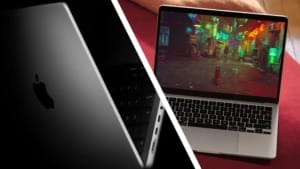SoftBank plans a billion AI agents to boost workers like ‘thousand-armed deities’
SoftBank aims to launch a billion self-replicating AI agents by year-end to boost productivity, but concerns about job displacement remain.

If you’re part of the workforce today, your job might soon look very different. SoftBank’s founder and CEO, Masayoshi Son, has announced plans to develop a system where one billion AI agents will operate alongside employees — and possibly even replicate themselves.
Speaking in Tokyo on July 17 to an audience of SoftBank’s corporate partners, Son explained how this new type of AI agent could dramatically increase human output. You might soon be able to rely on these agents to perform several tasks at once, effectively turning you into what Son called a “thousand-armed deity.”
These AI agents go well beyond tools like ChatGPT, which respond to prompts but don’t act independently. Instead, the agents SoftBank is developing will be capable of making decisions, working continuously, improving on their own, and even duplicating themselves to accomplish more work.
What makes these agents different
Unlike traditional AI chatbots, which require direct input to generate content, these new AI agents are designed to complete tasks with minimal to no direction. You could assign them work, and they would not only carry it out but also figure out how best to do it, thinking for themselves and adapting over time.
Son believes this self-evolving, self-replicating nature is what sets them apart. In his words, “The era of humans doing the programming is coming to an end.” That means you could expect these agents to write code, plan business strategies, or even negotiate deals — all without needing you to intervene constantly.
Powered by OpenAI’s technology, these agents will be tailored for corporate use. The system is designed to be secure, with the AI restricted to performing internal business tasks rather than acting freely in the outside world.
Concerns around job security and oversight
While the prospect of becoming far more productive may sound exciting, you may also worry about your job. With one billion AI agents possibly doing the work of millions of people, it raises a serious question: will these tools help you, or replace you?
Son hasn’t ignored this concern, but he hasn’t fully addressed it either. And you’re not alone in wondering about it. Other tech companies, including Microsoft, have recently cut thousands of jobs even as they ramp up investment in AI.
That connection has not gone unnoticed. Earlier this month, Microsoft announced 9,000 job cuts, citing the need to cut costs and focus more on AI-driven operations. It highlights a trend where businesses are turning to AI not only to boost performance but also to reduce staff.
With SoftBank’s project aiming to launch on a massive scale by the end of 2025, the pressure is on for Son to explain how this ambitious plan will be monitored — and what it means for people like you who are trying to stay relevant in a fast-changing digital workplace.
If all goes to plan, AI agents could become everyday partners in your job. But if not carefully managed, they could become replacements rather than helpers.
















